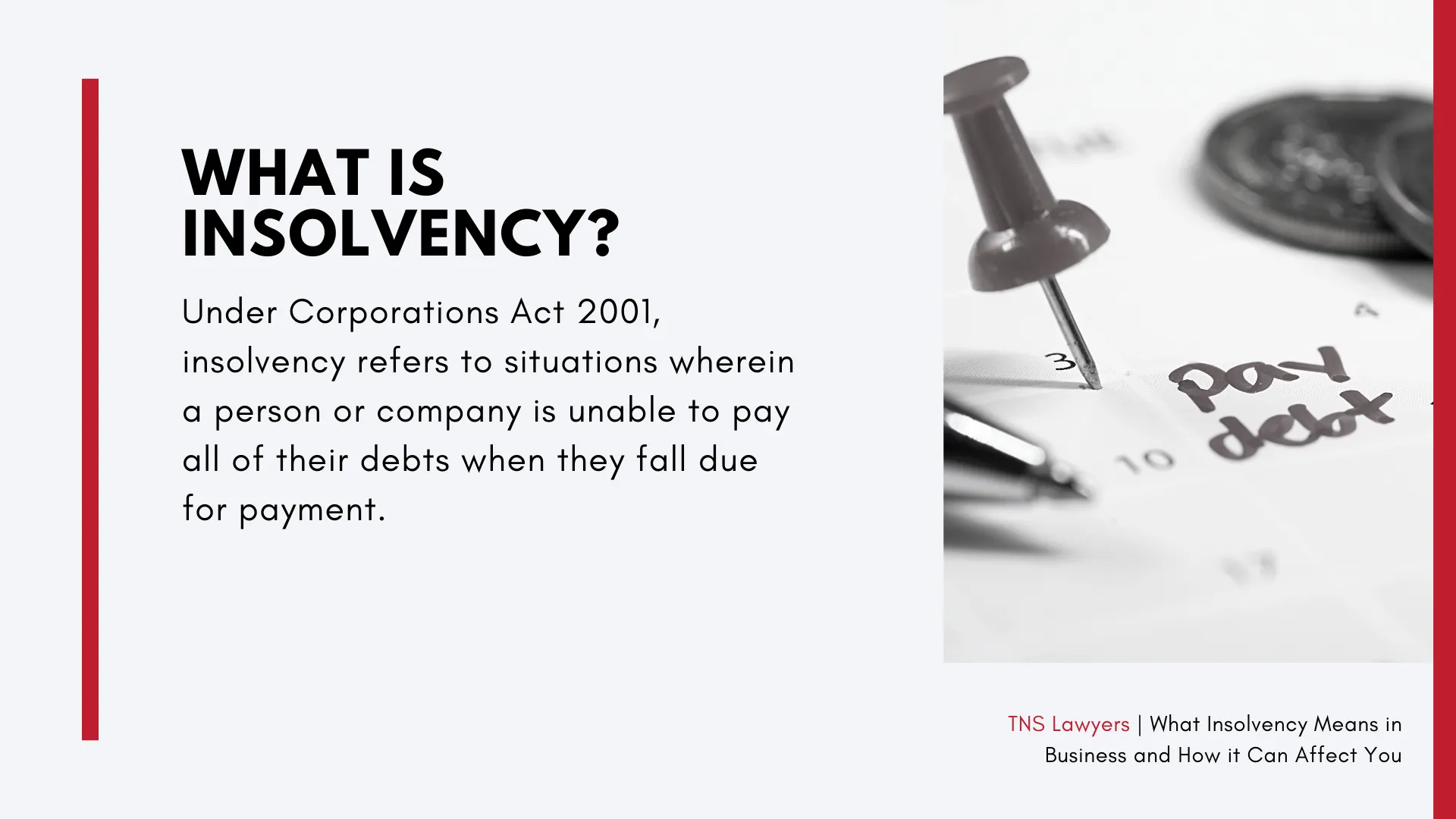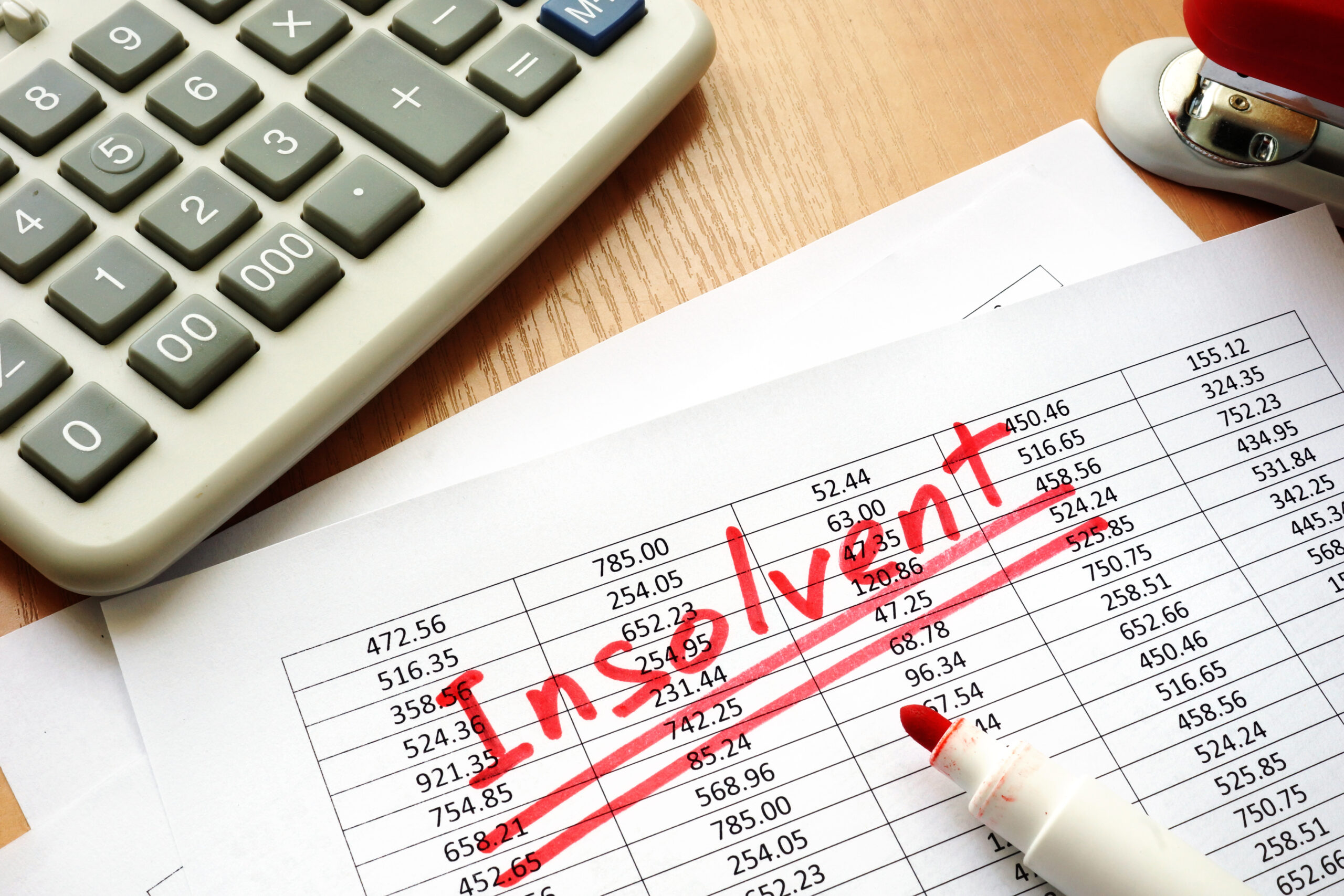The Ultimate Guide To Insolvency Practitioner
The Ultimate Guide To Insolvency Practitioner
Blog Article
Things about Insolvency Practitioner
Table of ContentsInsolvency Practitioner Things To Know Before You BuySome Known Factual Statements About Insolvency Practitioner Insolvency Practitioner - An OverviewInsolvency Practitioner Things To Know Before You Get ThisWhat Does Insolvency Practitioner Mean?The Definitive Guide to Insolvency PractitionerInsolvency Practitioner Fundamentals Explained
Insolvency is when liabilities are more than the worth of the company, or when a borrower can not pay the debts they owe. A firm can come to be bankrupt as a result of a number of circumstances that lead to poor capital. When faced with insolvency, a business or person can call creditors straight and restructure debts to pay them off.
Company proprietors might speak to financial institutions straight and restructure financial debts right into even more convenient installments. Lenders are typically open to this strategy due to the fact that they desire to be settled and prevent losses, also if the settlement is on a postponed schedule.
The owner develops a proposal detailing how the financial obligation may be reorganized utilizing expense decreases or other plans for support. The proposition reveals lenders just how business might generate enough money circulation for profitable operations while paying its debts. Typically, a forgiven financial debt might be taken into consideration revenue by the Internal Profits Solution (INTERNAL REVENUE SERVICE).
Getting The Insolvency Practitioner To Work
When a service needs to pay raised rates for goods and services, the company passes along the expense to the consumer. Instead than pay the increased expense, many customers take their business in other places so they can pay less for a service or product. Losing clients causes shedding revenue for paying the firm's lenders.
Business might end up paying big quantities of money in damages and be overcome procedures. When procedures stop, so does the business's income. Absence of income causes accounts payable and lenders asking for cash owed to them. Some firms become financially troubled since their products or solutions don't develop to fit consumers' transforming demands.
Insolvency Practitioner for Beginners
Expenses exceed profits and bills continue to be unsettled. Kinds of insolvency include cash-flow bankruptcy and balance-sheet insolvency. Cash-flow bankruptcy occurs when a firm has the properties to cover their financial obligations yet they remain in the incorrect form, such as realty as opposed to liquid funds. Balance-sheet bankruptcy, on the other hand, suggests a lack of possessions in any kind of kind to cover financial obligations.
The internal revenue service states that an individual is bankrupt when the overall obligations exceed complete possessions. Insolvency Practitioner. A insolvency, on the various other hand, is a real court order that portrays how an insolvent individual or service will repay their financial institutions, or exactly how they will certainly offer their have a peek here properties in order to make the repayments
The smart Trick of Insolvency Practitioner That Nobody is Talking About
When a company or individual is pop over to these guys insolvent, they can not meet their economic commitments. Insolvency is not the exact same as bankruptcy, although a business that has become financially troubled might submit for personal bankruptcy. Bankruptcy is the state of not being able to pay your commitments while insolvency is a lawful procedure to release your financial debts.
Recognizing the variables that can lead to bankruptcy, such as overspending, can help you stop bankruptcy and its repercussions.
Insolvency Practitioner for Dummies
It is well known that supervisors and policemans of corporations (and managers of restricted responsibility companies) owe fiduciary duties to their companies and their shareholders (or participants). These fiduciary commitments are specified by state laws and, though there are variations from one state to another, they commonly consist of a task of commitment and a responsibility of care.
The obligation of treatment requires directors and policemans to work out diligence, to make enlightened decisions, and to act in great faith to ensure that their actions remain in the most effective interest of the company. Beyond the scope of this discussion, some states permit these tasks to be restricted either by so keeping in mind in the organizational records or complying with various other demands.
Insolvency Practitioner Things To Know Before You Buy

Be mindful concerning providing shareholders special treatment at the expenditure of lenders (e.g., authorizing and funding a reward or a stock redemption). Take care concerning special treatment between classes of shareholders. Clear up efforts to learn all the truths before taking a particular course of activity; supervisors should genuinely think that any type of decisions made remain in the most effective interests of the firm in its totality (i.e., decisions will be assessed in knowledge taking into account the impact of such activities on the company).
In any kind of insolvency or insolvency proceeding, payments made to specific lenders at the cost of other financial institutions can be clawed back, specifically if there is some connection in between the company and the lender. Think about recommending at a yearly investor conference (or any type of other meeting of shareholders) a resolution attesting that all previous company decisions and activities taken by the directors and officers of the firm were taken in good faith after a workout of practical treatment.
The 9-Minute Rule for Insolvency Practitioner
Completely divulge any individual or company relationships with parties beyond of transactions entailing the corporation to prevent the appearance of a problem of interest. In reviewing possible fund elevating purchases or a sale of properties of the troubled corporation, realize that these transactions might be looked at later on in light of any succeeding development of supervisors' fiduciary tasks to consist of creditors.
Report this page